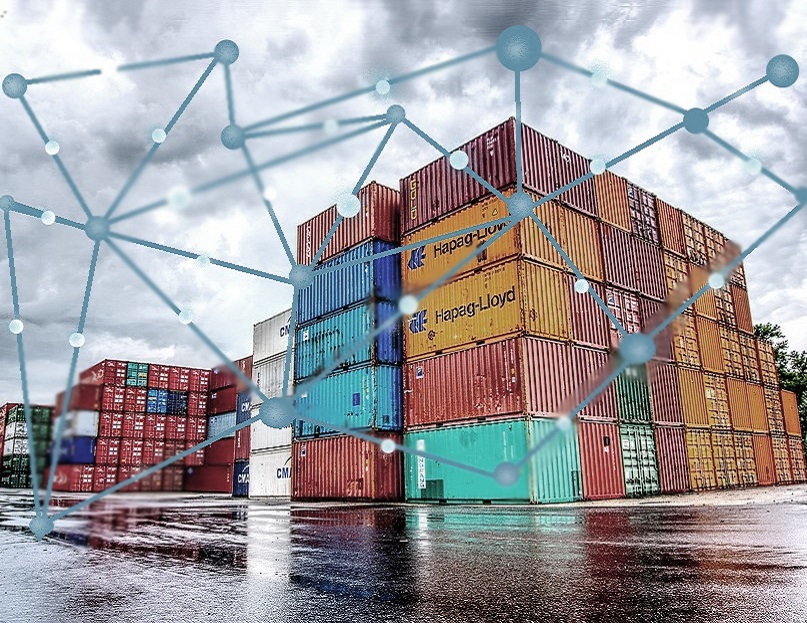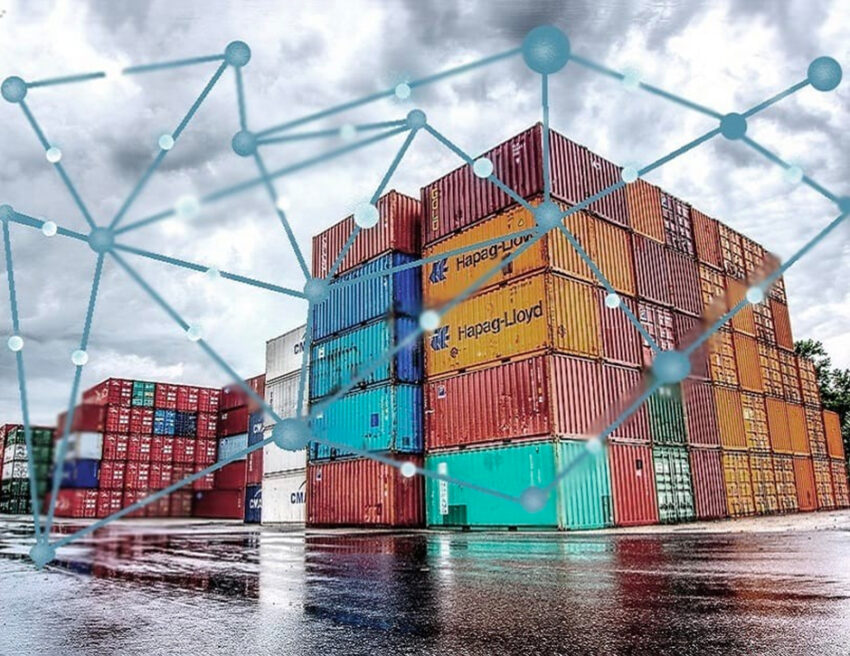The transportation and logistics industry is finally waking up to the call of digitization. The freight forwarding industry is presently undergoing a major change in their business models keeping in line with the new market trends and customer demands. However, digital transformation doesn’t simply entails the creation of an IT team and investments on new software. It is more about establishing a well-defined digital strategy, making data more available, and planning the appropriate engagement with the customers. The topic of today’s blog is all about the digitization of the freight forwarding industry and how the role of freight forwarders needs to evolve.

The change in the role of players in the freight forwarding industry
To date, the freight forwarders’ sole responsibility was to organize and oversee the transportation of cargoes. They traditionally acted as agents of the carriers or as forwarding agents. The success of a freight forwarder depended on his experience, industry knowledge, international network, and ability to mitigate crisis situations. Their role was to expedite the global commercial operations. Moreover, they also started offering additional transportation-related services like packing, customs clearance, documentation, storage, handling, and distribution.
Nevertheless, these days the freight forwarding industry has integrated the administrative procedures with the customers. Now their work encompasses several other efforts that address the simplification and automation of the job at hand. This includes several processes such as transforming the relationship with the clients, digitization of the quote generation and reservation process, data transparency between suppliers and customers. Furthermore, it also involves cost reduction and most importantly a fresh look at the transportation and information management procedure.
Why the independent freight forwarders need to digitize their operations
The use of technologies has made the transportation and logistics industry more efficient. The streamlining of the supply chain techniques and the reduction of manual work are accelerating the logistical processes. Most importantly, in the present uncertainty caused by the pandemic, digitization is making the supply chain more resilient. The online platforms are allowing for more agile and transparent logistical operations. Digitization has added value to several supply chain processes including price and capacity, traceability, transport chain management, route information, quote generation, shipment grouping, contracting, and more.
However, to make the most of the digitization endeavor, we also need improved outsourced operations like customs clearance, warehousing, transportation, etc. It is interesting to know how the professions that worked alongside freight forwarding are digitizing their operations and encroaching on the territory of the forwarders. For example, airlines and shipping companies now offer digital platforms from where customers can directly book a shipment. The rising volume of e-commerce is posing a stiff challenge to the market held by the traditional forwarders. The question is whether independent freight forwarders can deal with these challenges.
The evolving role of the independent freight forwarders
One of the biggest advantages of technology is that it allows forwarders to expand their customer base. Competition in this sector is on the rise. This is because of the emergence of several market operators in both the domestic and international markets. Therefore, it is taking a toll on the market of traditional freight forwarders. However, freight forwarders have the option of evolving and adapting to technology to start playing a more important role in the industry. Direct contact with the clients and the enhancement of their experience is now considered fundamental to the success of the freight forwarder. Although industry experience and knowledge of this sector are important, it has been somewhat relegated to the background since the advent of digitization.
The first step towards digitization should tackle the streamlining and digitization of operations like enhancing customer relationships. The automation of your quote generation process can be an important step in this regard.
What the logistics companies should do to stay competitive
Even 5 years back the industry was still starting the process. However, ever since the pandemic we can see a marked acceleration in the process of automation. Eight of the top ten carriers have created their personal instant quote generation platform. This process commenced back in 2008 with the launch of Maersk Spot Booking. Presently, 52% of Maersk’s spot cargo is booked online. Historically carriers have always been a step ahead of forwarders when it comes to digitization. Nevertheless, this trend started to change a few years ago. Freight forwarders are steadily adopting digitization to keep pace with the industry changes.
The best example to show this phenomenon is the digital freight forwarder founded in 2013, Flexport. Another example in this regard is the Freightos portal that offers a virtual market giving access to loads of offers. Additionally, they also provide instant quotations and follow-up services via messaging. We need to keep in mind that companies like Freightos aren’t posing a direct challenge to independent freight forwarders. It doesn’t aim to displace the carriers or forwarders. Its objective is to promote direct contact between all the stakeholders in this sector. Putting it simply, the pandemic has turned the digital process from a trend to reality. Platforms such as Freightos, Flexport, WebCargo, Freighthub, or iContainers are handling massive amounts of data addressed directly to the clients. They are making use of third parties to provide comprehensive door-to-door services. Additionally, other stakeholders of this industry like the airlines and port authorities are also offering transparent, customer-focused services. They are making more information available to the end customers- information that was so far reserved just for the forwarders.
To sum up
In conclusion, we can say that the present change in the freight forwarding industry is defined by the capability to manage a large amount of data. This is the challenge that the freight forwarders need to deal with utmost caution. Even though digitization isn’t going to bring about an overnight change, the freight forwarders need to be ready with the most appropriate strategies. They need to break free from the conventional ways and embrace the changes that are taking place in the industry. Although investing time and capital can be an arduous task, it is imperative to keep your business functioning in the long run.



